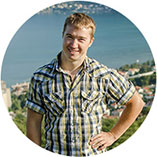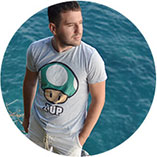Каждый день смотреть по одному видео TED-talks (декабрь'15)
Начнем с малого - срок до 31 декабря
(Каждый день до 27 декабря)
Критерий завершения
Ролики просмотрены
-
7 -13 декабря
-
7 декабря
-
8 декабря
-
9 декабря
-
10 декабря
-
11 декабря
-
12 декабря
-
13 декабря
-
-
14 - 20 декабря
-
14 декабря
-
15 декабря
-
16 декабря
-
17 декабря
-
18 декабря
-
19 декабря
-
20 декабря
-
-
21 - 27 декабря
-
21 декабря
-
22 декабря
-
23 декабря
-
24 декабря
-
25 декабря
-
26 декабря
-
27 декабря
-
- 4134
- 07 декабря 2015, 09:16
Не пропустите новые записи!
Подпишитесь на цель и следите за ее достижением



